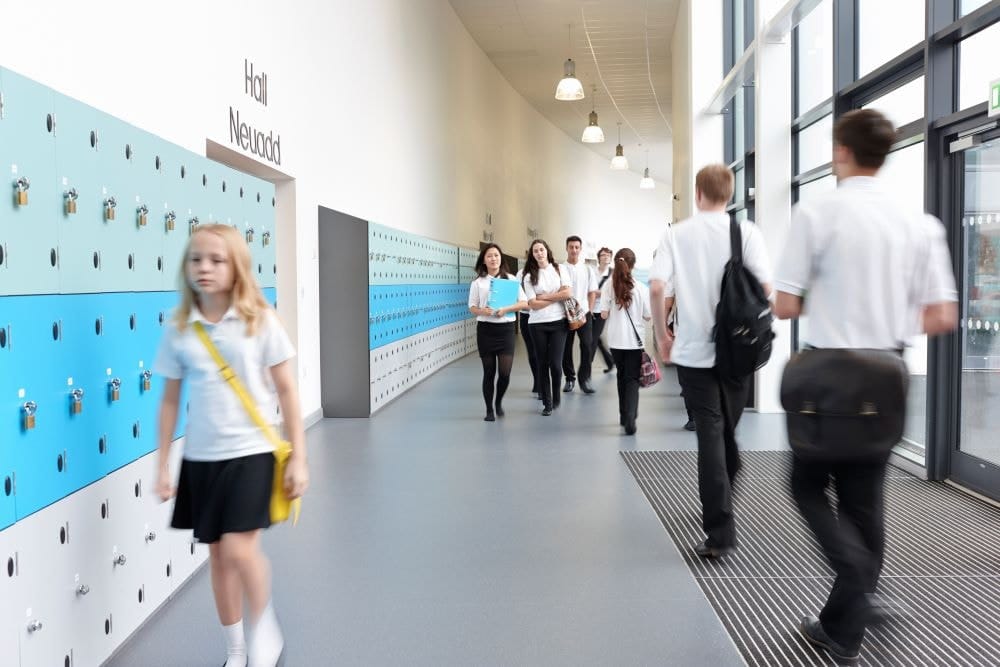
Bathroom access is a fundamental need for students, essential for maintaining health, dignity, and focus. Yet, some school policies restrict students’ ability to use restroom facilities, raising concerns about students’ rights and potential legal repercussions. This article answers whether it’s illegal to deny a student bathroom access and explains the legal protections in place to ensure fair treatment for all students.
Is It Illegal to Deny a Student Bathroom Access?
Yes, in certain situations, denying students access to a bathroom may violate their legal rights. While schools have the authority to implement policies that minimize disruptions and maintain order, those policies must align with federal laws, state laws, and basic human dignity.
Federal protections such as the Individuals with Disabilities Education Act (IDEA), Title IX, and the Rehabilitation Act mandate that schools provide reasonable accommodations for students with medical conditions or disabilities. Denying bathroom privileges in these cases could result in legal action against the school.
Why Is Bathroom Access So Important in Schools?
Denying a bathroom break can have severe implications, including:
Health Risks: Holding urine for extended periods increases the risk of urinary tract infections and other medical conditions.
Mental Health: Restricting bathroom use can lead to embarrassment, stress, and anxiety, which may harm a student’s well-being.
Academic Performance: Students experiencing physical discomfort cannot focus or learn effectively.
Providing regular bathroom breaks and addressing bathroom access issues ensures a supportive learning environment for all students.
What Laws Protect Students’ Bathroom Rights?
Several federal laws and regulations protect student bathroom access:
1. Individuals with Disabilities Education Act (IDEA)
Under IDEA, schools must make reasonable accommodations for students with disabilities, including those who require frequent bathroom breaks due to medical needs.
2. Title IX
Title IX prohibits discrimination based on gender identity or sex. Schools must provide equal access to restroom facilities that align with a student’s gender identity.
3. Rehabilitation Act of 1973
Section 504 of this act mandates that schools receiving federal funding cannot deny reasonable accommodations to students with medical conditions or disabilities.
4. Constitutional Protections
Denying access to a bathroom may infringe upon a student’s constitutional rights, particularly when it results in harm or humiliation.
How Should Schools Handle Bathroom Access?
School districts and school administrators should implement policies that balance order and students’ basic needs:
Train staff to recognize the importance of bathroom use for students’ health and well-being.
Establish clear bathroom policies that ensure fairness and equal access.
Provide reasonable accommodations for students with medical conditions or other unique needs.
School officials should focus on maintaining order without compromising students’ rights to basic human dignity.
What Can Students and Parents Do About Bathroom Restrictions?
If your child experiences bathroom restrictions at school, follow these steps:
Stay Calm: Encourage your child to stay composed and inform a teacher or school principal of their immediate need.
Document Incidents: Keep a record of instances where the school has restricted access.
Communicate with the School: Address the issue with school officials and request an adjustment to such policies.
Seek Legal Help: If the issue persists, consult an employment attorney or education lawyer to explore legal action.
Can Schools Deny Bathroom Access for Disciplinary Reasons?
While schools may attempt to use bathroom restrictions as disciplinary measures, legal requirements dictate that such actions must not violate students’ constitutional rights or cause harm. For instance, denying a bathroom break to a student with documented medical needs could result in legal consequences.
FAQ: Understanding Your Rights as a Student
What is the Disabilities Act, and how does it protect students?
The Americans with Disabilities Act (ADA), ensures that students with disabilities receive equal access to education. It requires schools to provide reasonable accommodations to support a fair and inclusive learning environment. This law protects against discrimination in all public and many private schools.
What are examples of reasonable accommodations for students under the ADA?
Schools must provide accommodations tailored to a student’s needs, such as:
Additional time for tests and assignments.
Access to assistive technologies or specialized equipment.
Modified seating arrangements or accessible classrooms.
Permission for service animals in the classroom.
These accommodations help students fully participate in their education.
Can a school deny accommodations for my disability?
No, schools are legally obligated to provide reasonable accommodations as long as they don’t impose an undue hardship on the institution. Denying accommodations may violate both the ADA and the Individuals with Disabilities Education Act (IDEA).
How do I request accommodations if I’m a student with a disability?
Notify the School: Inform your teacher, counselor, or school administrator about your needs.
Provide Documentation: Share medical or psychological evaluations that support your request.
Collaborate on a Plan: Work with the school to develop a 504 Plan or Individualized Education Program (IEP) if applicable.
What can I do if a school refuses to provide accommodations?
Take these steps to address the situation:
Document Everything: Record all communication with school officials regarding your request.
File a Complaint: Contact the U.S. Department of Education’s Office for Civil Rights (OCR) or your state’s education agency.
Seek Legal Help: Consult an attorney who specializes in education law to discuss your options.
Are bathroom access issues covered under the Disabilities Act?
Yes. Schools must ensure that students with disabilities have access to restroom facilities as part of their reasonable accommodations. Denying access could be considered discrimination under the ADA and other federal laws.
Can schools discipline students for taking unscheduled bathroom breaks due to a medical condition?
No. If a student has a medical condition requiring frequent or unscheduled restroom use, schools must accommodate this need. Punitive actions, such as detention or suspension, for medical-related bathroom use may violate the ADA.
How can students address discriminatory behavior at school?
Report the Incident: Notify a trusted teacher, counselor, or the school principal about the issue.
File a Complaint: If the situation doesn’t improve, contact the OCR or other relevant federal agencies.
Seek Advocacy: Reach out to a local disability rights organization or legal counsel for additional support.
What are the legal consequences for schools that violate students’ rights?
Schools found in violation of the ADA or IDEA may face penalties such as:
Federal investigations and required corrective actions.
Legal action from families or advocacy groups.
Monetary damages, including compensatory damages for the affected student.
How can I get help if my rights as a student are being violated?
If you believe your school is not upholding your rights under the ADA or other laws, Bourassa Law Group can help. Contact us for a free consultation. Our team will guide you through the process, ensuring you receive the fair treatment and accommodations you deserve.
Conclusion
Restricting bathroom access can negatively impact a student’s health, dignity, and ability to succeed. If your child has faced unfair treatment regarding bathroom use, Bourassa Law Group can provide legal help. Our team will work to ensure your family’s rights are upheld and help you achieve the fair treatment and justice you deserve.
Take action today—reach out to us to protect your student’s rights.





